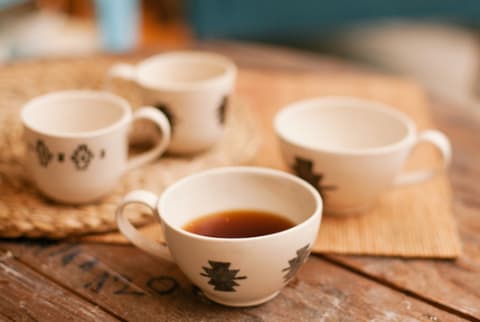Advertisement


Dr. Leo Galland is a recognized leader in the world of integrative medicine, an approach to health that aims to heal the whole body for optimal health, combining Western science with complementary practices. We're thrilled to have Dr. Galland as a mindbodygreen contributor and to feature an excerpt from his upcoming book, The Allergy Solution: Unlock the Surprising, Hidden Truth About Why You Are Sick and How to Get Well, co-authored with Jonathan Galland. Here, he shares one of his favorite food-as-medicine practices:
For over 3,000 years, tea has been used as a medicinal beverage. Now modern science has discovered that a special type of tea, oolong, may offer unique anti-allergic benefits.
Oolong tea is made from partially fermented tea leaves, giving it a distinctive mellow flavor. Chinese oolong is aged longer than Formosan oolong.
Tea leaves are rich in natural compounds called catechins, which are a family of flavonoids. Fermentation changes the nature of the catechins, which alters the physiological effects of tea drinking.
In laboratory studies, the catechins found in oolong tea were shown to inhibit allergic reactions in rats and were more potent than those found in green tea. In a clinical trial done in Japan, people with allergic eczema that had not improved with medication were given oolong tea to drink for six months. While drinking the oolong tea, the majority of the people in the study experienced a moderate to marked improvement in eczema within one month, with benefits being first noticeable after one to two weeks.
How to Drink Oolong Tea
The amount used was 10 grams of tea leaves, equivalent to about 3 teaspoons of dried leaves or four tea bags, brewed in boiling water for five minutes. According to the Japanese study, the right amount of tea is four cups a day. Do not exceed this amount per day.
To ensure that your tea has a high level of catechins extracted from the leaves, brew the tea in boiling water for five minutes. If the tea is too strong, boil it in a small amount of water and dilute with plain hot water to the desired concentration.
To reduce the amount of caffeine in your tea, first steep the tea leaves in hot water for 30 seconds and discard the water. Then add fresh water and boil for five minutes. Most of the caffeine will be extracted in the initial waste water. Most of the catechins will remain in your tea.
Note: If you are allergic to tea, please do not drink tea. You may have plain hot water, a common beverage in China and Japan.
Related reads:
- 11 Proven Ways Coconuts Heal (Just About) Everything
- Why You Should Have Ginger Every Day
- 5 New Reasons To Drink Tea + How to Brew Your Spring Detox Cup